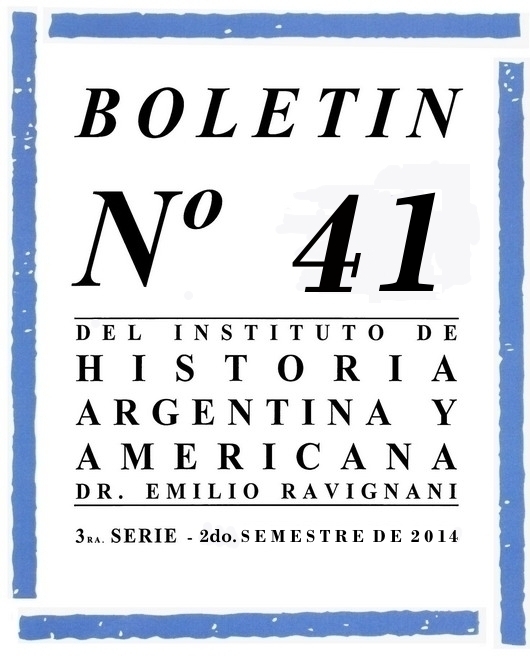AZÚCAR, PERONISMO Y MELODRAMA EN EL FILME MANSEDUMBRE (1952)
Resumen
En 1952 se estrenó en Tucumán uno de los primeros largometrajes producidos íntegramente en el interior de la Argentina, Mansedumbre, transposición de la novela homónima de Guillermo C. Rojas, publicada en forma contemporánea al rodaje del filme hacia 1951. Sin embargo, el libro era, a su vez, una nueva versión de una obra anterior: Mansedumbre Herida, escrita en 1940. Este artículo hace foco en las representaciones en torno a la agroindustria azucarera tucumana y al peronismo que la película pone en escena, especialmente a partir del análisis comparativo de la versión original con la realizada durante el gobierno peronista. Sostendremos que la película expresa el imaginario de un actor fundamental de aquella actividad, el cañero chico, y que revela la continuidad de elementos discursivos melodramáticos que circulaban en la esfera pública durante las décadas de 1920 y 1930, en el mundo simbólico del primer peronismo.Descargas
Los derechos de autor son cedidos al Boletín, pero los autores podrán recuperarlos y reproducir su trabajo en otros medios o formatos mediante una solicitud por escrito al Comité Editor. En esos casos, se citará al Boletín como primera publicación del trabajo.
Las obras quedan licenciadas bajo una Licencia Creative Commons Atribución-No Comercial 4.0 Internacional, que permite a otros compartir el trabajo con un reconocimiento de su autoría y la publicación inicial en esta revista.
También, mediando solicitud por escrito al Comité Editor del Boletín, los autores pueden establecer por separado acuerdos adicionales para la distribución no exclusiva de la versión de la obra publicada en esta revista (por ejemplo, situarlo en un repositorio institucional o publicarlo en un libro), con un reconocimiento de su publicación inicial aquí. No se permiten usos comerciales.



















